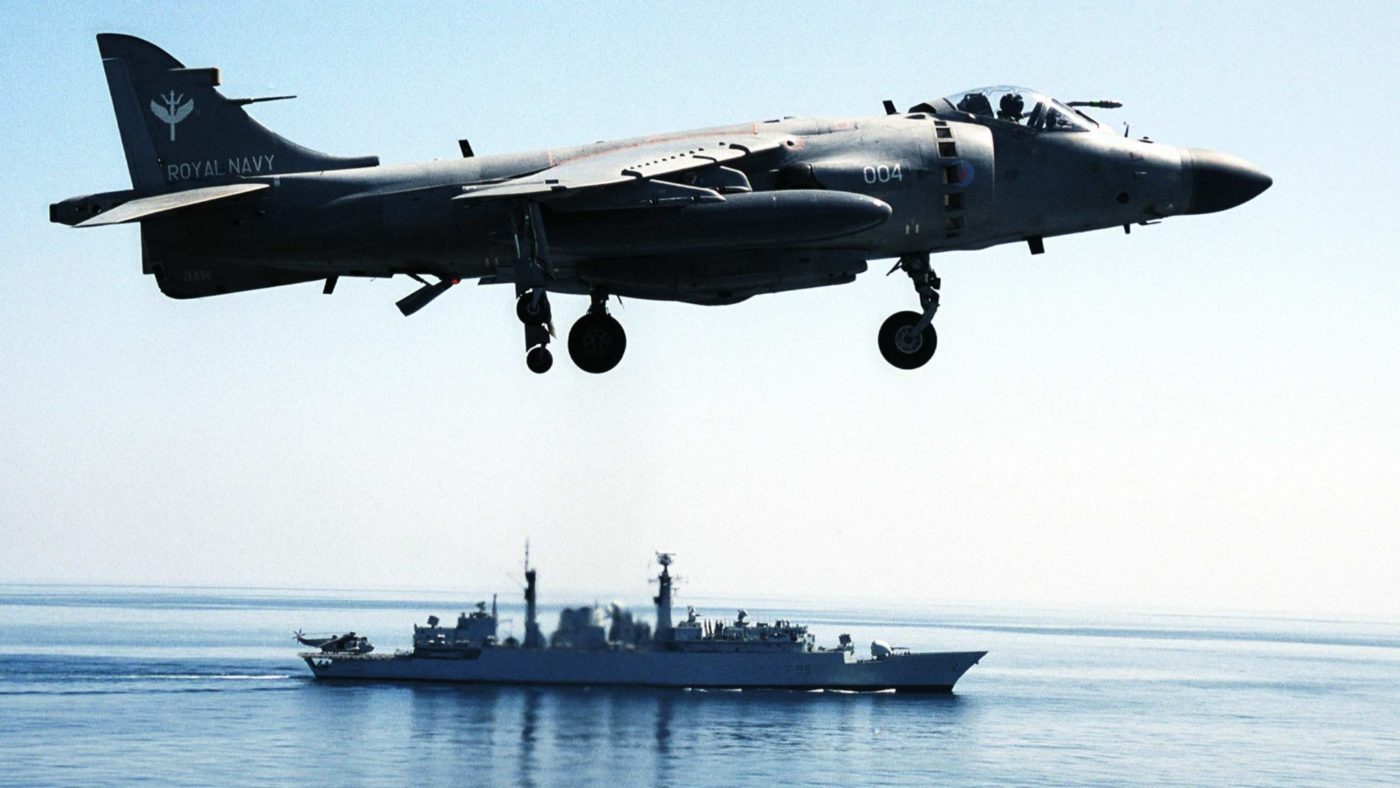The recent announcement that the United Kingdom will increase its defence engagement with the Sultanate of Oman reinforces a historic strategic alliance between the two states, highlighting a relationship dating back to the 18th century. Based around a respect for national sovereignty and access to critical trading routes, the Government should seek to build upon the already strong Anglo-Omani alliance, in an effort to re-affirm the UK’s geostrategic position for future years to come.
The establishment of the new UK Joint Logistics Support Base at the deep-water port in Duqm, to be completed by March 2019, allows the UK basing rights for both submarines and, crucially for its size, the new Queen Elizabeth class aircraft carriers – the flagship of the Royal Navy and a statement of British maritime prestige. The announcement by Defence Secretary Gavin Williamson of the UK base, in addition to the bilateral
Memorandum of Understanding and Services Agreement signed last August, underscores the deepening defence engagement emerging between Muscat and London.
With the British historically keen to maintain a presence around the strategic shipping lanes across the Arabian Peninsula, both at the Red Sea and at the Strait of Hormuz, it was with a view to the protection of India, the crown of the British Empire, which Britain regarded its relations with Oman. Relations between the two states were strengthened during the British defence of the Sultanate throughout the Cold War period, in particular the SAS and Royal Air Force campaigns during the 1950s against rebels financed and supported by both the Soviet Union and China.
Fast-forward half a century into a region witnessing an increasingly assertive China, which shows little regard for international norms and values, in which approximately 80 per cent of global oil is transported, the UK must look to the Indo-Pacific, and to the emerging markets in east Asia to both ensure economic growth and help uphold the rules-based international order. Whilst Britain has sovereign territory on Cyprus, including at RAF Akrotiri, and military basing rights in both the UAE and Bahrain, the addition of the port facilities at Duqm solidifies a triangulation of British power projection across the Middle East.
This triangulation is important for maintaining national interests further afield. Duqm’s location at the southern tip of the Arabian Peninsula, allows the Royal Navy a springboard into the wider Indo-Pacific region, fulfilling several key strategic objectives. The necessity of maintaining maritime freedom of navigation patrols; ensuring access of the vulnerable shipping lanes crucial to global trade; and conducting anti-piracy operations with international allies are all firmly in the UK’s national interest.
These interests should be reinforced once the UK leaves the European Union, seeking to strengthen old alliances whilst establishing new ones throughout the Indo-Pacific, a region of increasing geopolitical significance , including key maritime choke points and strategic shipping lanes. Due to the current geopolitical realities in the region, states are pursuing their own national interests, often in direct competition with one another.
China’s pursuit for hegemony within the Indo-Pacific has become all too evident in recent years – particularly Beijing’s willingness to deploy its military to project power within the region. China has also made clear its willingness to ignore international law; increasingly displaying a Machiavellian approach to its regional foreign policy, to enhance its global position.
In 2013 the Philippines forwarded a claim to the United Nations Permanent Court of Arbitration (PCA) regarding China’s illegal acquisition of maritime features within the South China Sea. This case set a significant legal precedent, where in 2016 the court unanimously concluded that China had indeed acted illegally. The PCA made clear that Chinese assertions regarding intrinsic historical rights in the region, specifically Beijing’s so-called ‘nine-dash line’ demarcating its supposed maritime territory, were ill-founded and held no legitimate legal grounding.
However, with the absence of a suitable mechanism for the enforcing the PCA’s legally binding decision, China has been able to act with impunity. Indeed, China has publicly rebuked the PCA’s conclusion and acted with disdain and belligerence towards a respected international institution.
Such behaviour shows Beijing’s willingness to defy the rules-based system in order to enhance its position within the Indo-Pacific region. Although such an approach may not be that surprising, it’s worth noting that China had previously largely been regarded as a law-abiding, especially in the area of sovereignty and the principle of non-interference, if not when it comes to human rights. However, its disregard for the PCA’s decision is another sign that China has adopted a new approach to international relations.
Importantly, it is not just the South China Sea where China has displayed a propensity to display such tactics. This has been evident throughout the Indo-Pacific with the ‘String of Pearls’ theory, a geopolitical concept referring to China’s ambitions and conduct in the Indian Ocean. China has utilised a synthesis of military assets and commercial outlets to dominate sea lines of communication stretching from the Chinese mainland to Port Sudan on the Red Sea.
Although Beijing has strongly argued that its actions are nothing more than necessary moves to encourage and enhance trade partnerships, many observers see in their behaviour a clear geopolitical agenda to dominate major maritime choke points, furthering Beijing’s reach within the Indo-Pacific and risking more regional instability.
It is in context that we should welcome Britain’s commitment to maintaining a revamped and modernised Royal Navy presence in this important region. It’s a decision that recognise the importance of an inclusive Indo-Pacific region for maintaining global trade, particularly post-Brexit when the UK will need to make its way in the world. The deepening Anglo-Omani partnership is a fine example of what a true Global Britain strategy should look like.


